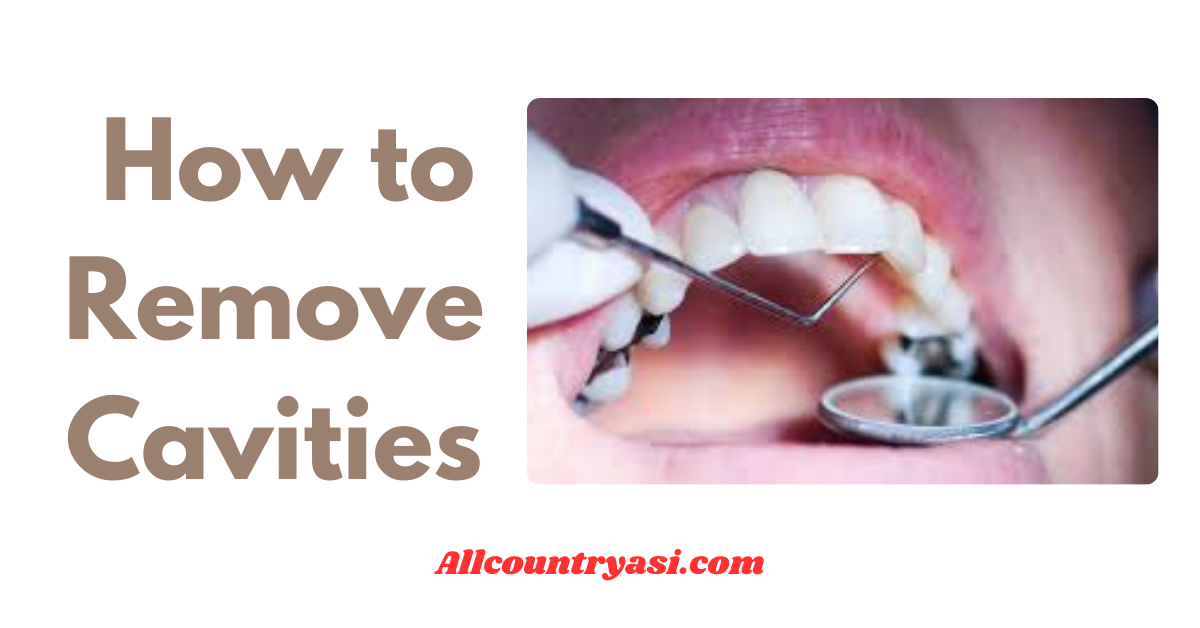Cavities, scientifically referred to as dental caries or tooth decay, are one of the most widespread dental diseases that everyone faces in their life. Learning the steps to have cavities taken out and stopped is also essential for good oral health. The guide will also discuss what cavities are, how they can be prevented and treated, along with some common questions.
Understanding Cavities
What Are Cavities?
Cavities are holes in your teeth caused by a bad bacteria-acid combo and poor oral hygiene habits. Briefly, these factors are:
- Bacteria: Our friendly mouths like sweet stuff too. Acid is made by these bacteria in the process of consuming sugar from food.
- Acid Production: The plaque bacteria in our mouths are especially prone to consuming sugars. Video Loading Video Unavailable Click to play Tap to play. Coca-Cola Acid Commercial No. (Image: Getty) This video is not suitable for some because it features a graphic simulation of the process that takes place in the human stomach after drinking carbonated sugary soda; bad bacteria consume sugars from other foods we eat and thereby produce acid.
- Plaque: Our mouths are full of bacteria that feast on sugars. Play video loading video unavailable Click to play. Tap to play. The video will start in 8 Cancel Play now Coca-Cola Acid Commercial (Image: Getty) Get the biggest daily news stories by email. Subscribe See our privacy notice. More newsletters When these bad bacteria feed on sugars from food we eat, they excrete acid.

Symptoms of Cavities
And reminding them of the signs of cavities can help in seeking proper treatment. Common symptoms include:
- Tooth Sensitivity: Pain, including soreness or pain from hot, cold, or sweet food or beverages. Normally, this sensitivity appears due to the enamel being eroded and unable to protect more sensitive dentin.
- When your tooth requires even more than a filling, if you have actually had consistent discomfort from one specific tooth, this might be an indicator that the dental caries has gotten too deep and also possibly right into the pulp of your tooth.
- Cavities, if left untreated, can soon develop into visible holes or pits in the teeth that you will be able to see during a dental exam and by looking inside your mouth.
- Discolouration: If you see dark spots on the teeth, often brown to black in colour, this is a clear sign of decay. They look different than the rest of the enamel and generally require a dentist to see if they can be removed or need further aid.
Prevention of Cavities
Best Practices for Dental Hygiene
The major approach for cavity prevention and treatment is your daily oral health habits, which should include brushing teeth at least twice a day. Below are some necessary steps to take.
- Brush Regularly
- Frequent: At the very least, you must brush twice a day (ideally in the morning and before going to bed) to remove plaque along with any remnants of food.
- Method: Fluoride toothpaste and soft-bristled brush for 2 minutes, hitting every area of the teeth front, back, and chewing surfaces.
- Floss Daily
- Floss gets rid of food and plaque in the spaces between your teeth where a toothbrush can’t reach. This can help keep decay away from those areas, which are very cavity-prone.
- Use Mouthwash
- Antimicrobial mouthwash can additionally cut back plaque and bacteria within the oral fissure. Fluoride mouth rinses can also harden enamel and prevent tooth decay. Surprise your mouth with a rinse before or after brushing and flossing.
Dietary Considerations
We all eat, and what we choose to do has a profound impact on the status of our oral health. Here are some critical diet tips for maintaining cavities away from your teeth:
- Avoid Sweet Things and Sugary Drinks: This is essential as high-sugar snacks; therefore, sweet beverages arouse acids, contributing to cavities. It is also best to limit your consumption of candy, soda pop, baked goods, and other sweet treats.
- Stay Hydrated: Water Dilutes the Mouth of Food Particles and Neutralises Acids Produced by Bacteria Taking fluoridated water on a daily basis can help in strengthening your enamel too.
- Choose Tooth-Friendly Foods: Nibbling on foods that are rich in calcium, such as almonds, dairy products, and leafy greens, can help reinforce the structure of your teeth. Saliva is thought to work as a defence system against cavities, so eating the types of crunchy fruits and vegetables will stimulate the saliva.
Treating Cavities
Professional Treatments
And if you have a cavity, it is important that your visit to the dentist immediately help correct it. Here are some clinical interventions you may consider:
Fillings
- Common Technique: Fillings Small to Moderate Cavities
- Treatment: The dentist will take out the decayed part of the tooth and then fill it with the best substance for filling.
- Material Choices:
- Aesthetic purposes have made this tooth-coloured material very popular, especially in anterior teeth and visible zones.
- Amalgam: An amalgam restoration, also known as a metal filling, is the most typical type of filling and can be used for all teeth; however, it will only generally be placed in posterior areas.
- Glass ionomer (releases fluoride to provide extra protection against new cavities) commonly used for non-bite areas
Root Canals
Root canals are required when decay reaches the innermost part of the tooth, the pulp.
- Procedure: The dentist removes the infected pulp, cleans and disinfects the inside of the tooth, and fills it with sealing material. This procedure can alleviate pain and save the tooth from extraction.
Crowns
Crowns are reserved for extensive decay that cannot be effectively treated with fillings.
- Procedure: The damaged part of the tooth is removed, and a custom crown is placed over the remaining tooth structure, providing strength and protection. Crowns can be made from porcelain, metal, or a combination of materials.
Home Remedies for Early Cavities
If you have early-stage cavities or are looking for ways to support your dental health, then some home remedies can help:
Oil Pulling
An Ayurvedic method that is believed to enhance oral hygiene:
- How to Do It: Swish 1 tablespoon coconut oil (or sunflower oil) for 15-20 minutes and then spit. That is thought to help decrease the quantity of bad viruses and then make it much more likely that the gum area will stay healthy.
Saltwater Rinse
Relieve mouth pain in a natural way with this simple but effective trick:
- Recipe: add 1 teaspoon of salt to a cup of warm water and gargle the mouth entirely. The heat could also help to decrease the bacteria and inflammation, providing some relief.
Increased Fluoride Exposure
This can strengthen enamel, which makes teeth loose less minerals from acid attack.
- How to Use: Brush teeth with fluoride toothpaste and consume fluoridated water. Ask that your dentist apply professional fluoride treatments if you have a tooth pitted on occasion.
FAQs About Cavities
Can cavities be reversed?
Early stage cavities, sometimes called incipient lesions, can be reversed. Remineralisation of the enamel is facilitated by good oral care practices and fluoride treatments. But once a cavity has advanced to the point of creating that hole, it cannot be reversed and needs professional care.
How often should I visit the dentist?
They will most likely recommend that you have a cleaning every 6 months. Yet, those who have had cavities in the past or specific dental concerns may benefit from more frequent visits to ensure additional preventative care and checks occur every three to four months.
Are fillings permanent?
Though sturdy, fillings are not always permanent. Some fillings will last only a few years, while others can survive over 10 years with good oral hygiene and dental habits of the patient. Dentists should periodically check the fillings on your teeth and decide whether you need new ones.
Can children get cavities?
Absolutely! Kids are especially susceptible to cavities because they eat a lot of sugar and are not trained well enough on the importance of oral hygiene, and their enamel is very prone. Children should be told about proper dental care and taken for regular check-ups. This will prevent cavities from an early age.
Conclusion
So learning what causes cavities, what they are, and how to treat them takes your power back. By taking good care of your teeth through oral hygiene, nutrition, and attending regular dental check-ups for cleanings, you can help to reduce tooth decay, thereby reducing the frequency in which it is needed. If you suspect that your cavity is already too far gone or if there are other dental issues at hand, make an appointment with a dentist who will address these problems directly for the owner of this mouth. Preventive dentistry is beneficial for body care and supports a beautiful smile as well.

3 thoughts on “Best Way How to Remove Cavities (2024)”